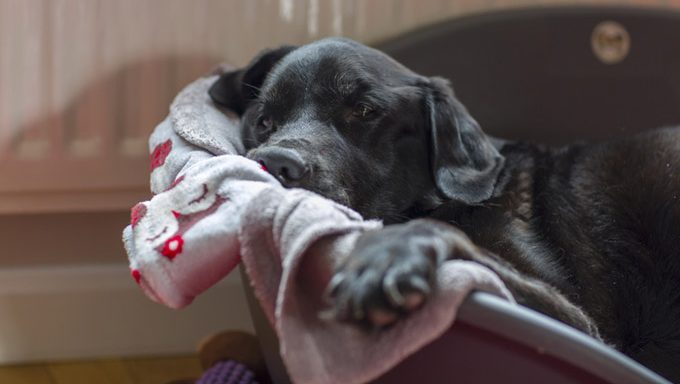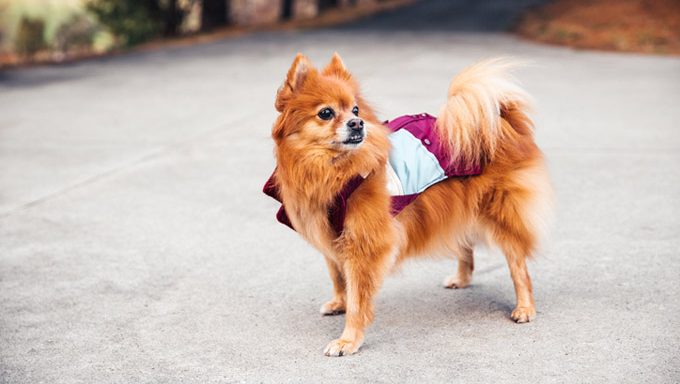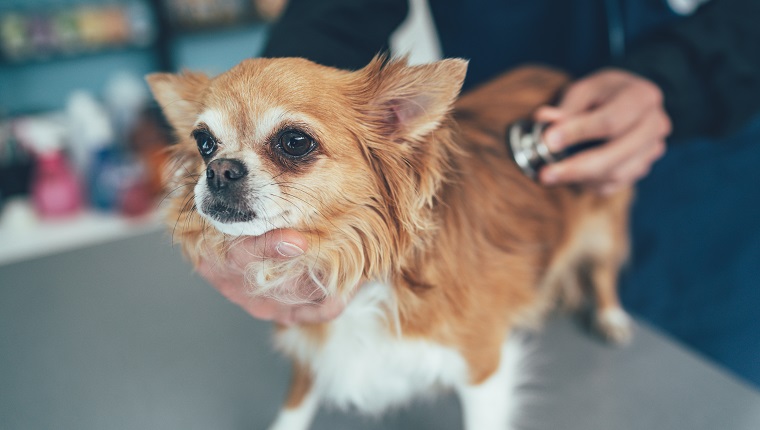(Image Credit: Getty Images)
In our “Gold Souls, Gray Faces” series, we focus on the needs of senior pets and what you can do to ensure that their golden years stay golden, and you can continue to enjoy their company for as long as possible. We can do a lot to help our senior dogs in winter months when the weather gets cold.
If we’re being honest, winter is hard for everyone. Biting winds contribute to dry and cracking skin, while the surrounding cold bears little-to-no relief on joints. Snow drifts and slippery roads make getting around difficult, while winter weather can exacerbate medical conditions. Many of these hurdles are no different for our beloved animals.
You’ve probably heard the adage “if they’re cold, you’re cold” in reference to not leaving our pets outside. It is important for us to realize that even though our beloved companions were domesticated from animals that had the wherewithal to survive these elements, our pets often do not possess the same abilities as their wild cousins anymore.
Furthermore, like us, as our pets get older, navigating these challenges becomes more difficult. Therefore it’s imperative that, as good pet parents, we meet and accommodate our senior dogs’ needs to ensure their comfort and longevity.
Here are a few ways to keep your senior safe and comfortable through the cold winter months.
1. Give Them Good, Warm Bedding

(Image Credit: Getty Images)
Few things are more pleasant in winter than a warm, comfortable bed. I’d argue that there’s never a bad time for such a thing personally, but I digress.
If this is a comfort that you enjoy, make sure your senior dog is getting the same treatment. While there are wide varieties of beds to choose from, anything orthopedic is generally recommended for an older dog so as to provide them with joint comfort.
This means that the bed will have a lot of padding, not stuffing that often gets worn down with use. Memory Foam may seem lofty, but it comes highly recommended by many dog owners.
The best part is that many of these beds can also come with specific waterproof protection if your elderly pet also has an incontinence problem.
2. Dress Them In Winter Gear

(Image Credit: Getty Images)
While these items aren’t suited only for senior dogs, they certainly will benefit a senior pet almost wherever you are.
Things like boots will help your elderly dog with traction, as well as keeping the worn skin on their paws protected from salt or antifreeze. If your senior is touchy about having footwear, you can try paw wax. You’ll have to wipe it off when you come inside, but your senior might prefer it.
Coats and sweaters will help keep their skin and joints warm from more biting winds, which is especially important for dogs with arthritis.
These things may be challenging if your pet isn’t one to don anything fashionable, but it is better to be safe than sorry.
3. Give Them The Right Supplements

(Image Credit: Getty Images)
We recommend not giving your dog anything without first consulting a veterinarian, of course. Once you have done so, ask about the application of glucosamine to your pet’s daily diet to help ease joint pain that often bothers arthritic dogs during the winter.
Chondroitin is also a suitable vitamin to combat osteoarthritis. Be wary of dosages though, as your dog’s size and weight will be contributing factors in just how much you should give your senior pet.
It’s important that you consult your vet before giving your dog supplements or vitamins, even if they’re available over the counter. Your dog may already be getting all the nutrients they need from their diet, so check with your vet to be sure.
4. Get A Checkup

(Picture Credit: filadendron/Getty Images)
Speaking of veterinarians, it might not be a bad idea to your senior pet for a checkup anyway. They may have further recommendations or specific ideas on what best ways to help your dog deal with the coming winter season.
You vet is an important resource for keeping your senior dog healthy. They know your pup’s medical history and their needs. Vets aren’t just good for prescribing medications and treatments; they’re also able to make recommendations for at-home care and lifestyle changes to keep dogs healthy.
5. Exercise, Even If You Have To Stay Inside

(Picture Credit: Kerkez/Getty Images)
Even though it may be cold outside, that’s no excuse to neglect your dog’s health. Finding ways to keep them active, both mentally and physically, can create a huge difference in the longevity of your pet.
If you have room in an area of the house that your pet can access comfortably, try setting up a play area where the two of you can interact and enjoy toys and puzzles together. If not, try and find ways to transform small areas of your house into a temporary play den for you and your furry friend.
Games like hide and seek could be fun. Even a short, slow game of fetch can get your dog moving. What’s important is keeping your pet stimulated while also spending time with them.
How do you keep your senior dog safe and happy in winter? Do you have any tips for other pet parents? Let us know in the comments below!
Related Articles:
Gold Souls, Gray Faces: 7 Tips For Walking Senior Dogs
Gold Souls, Gray Faces: 6 Outdoor Activities for Senior Dogs